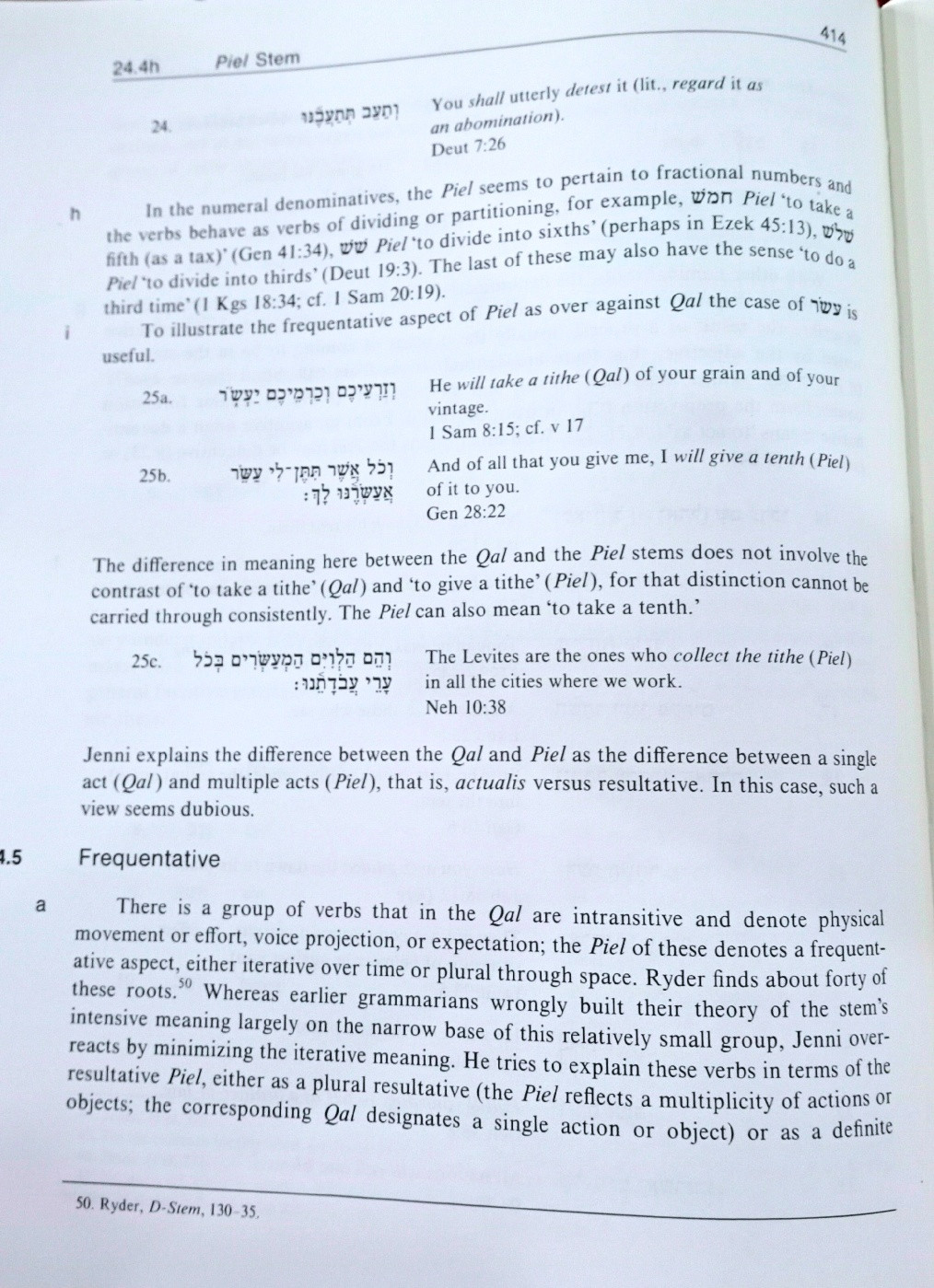The verb asar עָשַׂר(to take the tenth of, tithe, Strongs 6237) is used nine times in the OT, seven times in the Piel and two times in the Qal. My question is whether or not the use of this word in Jacob's vow in Genesis 28:22 has any indication of frequency?
When used in the Piel elsewhere (Deuteronomy 14:22, 26:12, Nehemiah 10:37-38) it seems to clearly indicate regularity/frequency as opposed to a one time event. When used in the Qal (1 Samuel 8:15,17) I am uncertain although it seems (to me) that it could also be repetitive.
In Waltke and O'Connor's Biblical Hebrew Syntax, page 414, they discuss the Piel used for fractional numbers and "to illustrate the frequentative aspect of Piel" they cite from Genesis 28:22. I've attached a picture of their comments, does this mean Waltke/O'Connor are arguing that the verb in Genesis 28:22 may indicate frequency (more than one time)?
I don't understand Waltke's comment that Jenni's "view seems dubious." Please see photo:
